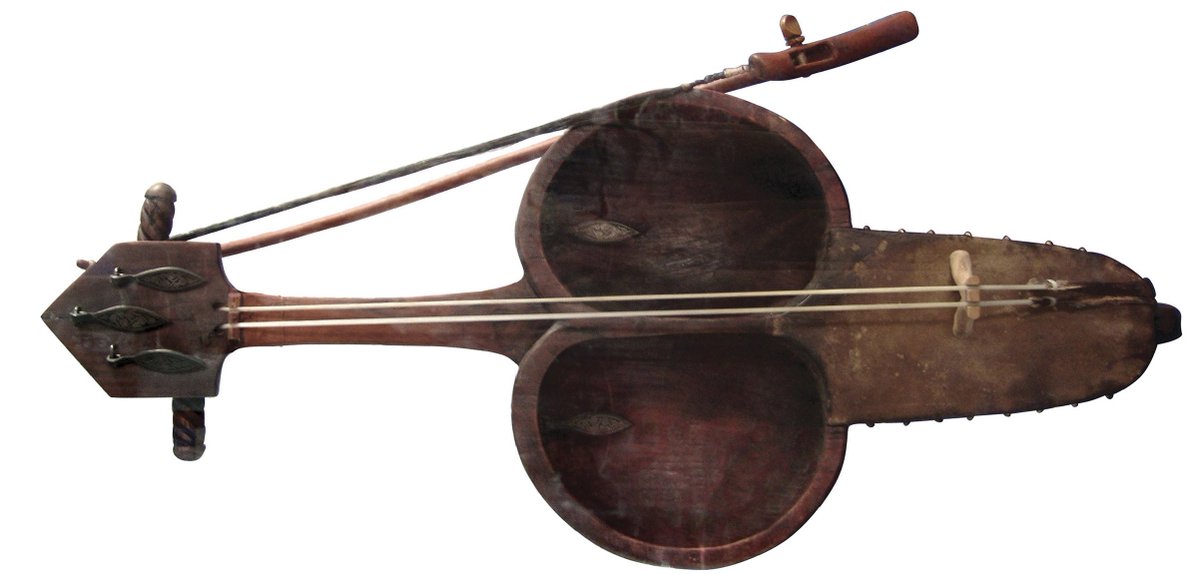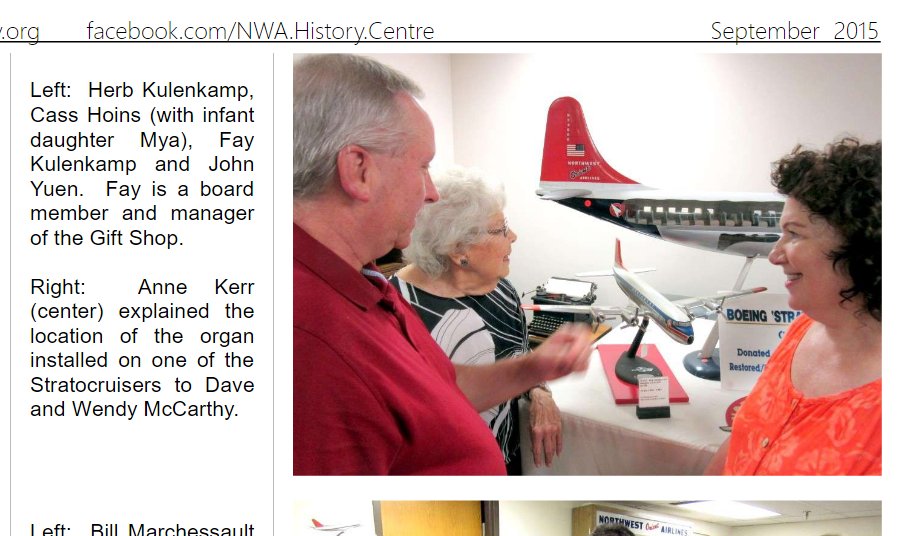Just to give an idea of how parochial Western music education ecosystems are, here's what a part of a bimusical education system looks like. Similar programs in dozens of non-Western countries exist.
THREAD (1) #MusicHistory #Musicology
THREAD (1) #MusicHistory #Musicology
https://twitter.com/Silpayamanant/status/1382699671676674048
Twelve topics of an undergraduate Music History course for performance majors at Toraighyrov Pavlodar State University (PSU) in Pavlodar, Kazakhstan. A lot of composers and rep are listed in the Syllabus that I won't list in this thread.
Syllabus:
(2)tou.edu.kz/arm/upload/umk…
Syllabus:
(2)tou.edu.kz/arm/upload/umk…
Topic 1:
Intro to History of Kazakh Music. Pretty self-explanatory.
Topic 2:
Medieval Music: Epic of Oghuz Khan; Quran as a musical-rhythmic system; Korkyt-Ata (9th c. Kazakh philosopher/musician) creator of the Kobyz (pic below) and founder of Kazakh bowed strings music.
(3)
Intro to History of Kazakh Music. Pretty self-explanatory.
Topic 2:
Medieval Music: Epic of Oghuz Khan; Quran as a musical-rhythmic system; Korkyt-Ata (9th c. Kazakh philosopher/musician) creator of the Kobyz (pic below) and founder of Kazakh bowed strings music.
(3)

Topic 3:
Medieval musical treatises (Al-Farabi, Ibn Sina, Al-Jami, Darwish Ali, etc.) Theoretical problems and their significance for Kazakh music.
NOTE: in compiling my Arabic Music Theory Bib. I've come across several Kazakh articles and book length works on Arabic Music.
(4)
Medieval musical treatises (Al-Farabi, Ibn Sina, Al-Jami, Darwish Ali, etc.) Theoretical problems and their significance for Kazakh music.
NOTE: in compiling my Arabic Music Theory Bib. I've come across several Kazakh articles and book length works on Arabic Music.
(4)
Topic 4:
Music of the khanate period (15th-18th c.). Genres, poetry, improvisation of various ethnic groups (e.g. Asan Kaigy, Dospambet, Shalkiiz, Umbetey, Bukhara).
History of Aitys; song/poetry improvisation contests between different groups.
(5)
Music of the khanate period (15th-18th c.). Genres, poetry, improvisation of various ethnic groups (e.g. Asan Kaigy, Dospambet, Shalkiiz, Umbetey, Bukhara).
History of Aitys; song/poetry improvisation contests between different groups.
(5)
Topic 5:
Folk musicians/composers (18th-19th c.); The development of various instrumental kuys (would later become the basis for Kazakh Folk Orchestras' Symphonic Kuy). Many current orchestras & Phil. Societies are named after these figures, none of whom in Western canons.
(6)
Folk musicians/composers (18th-19th c.); The development of various instrumental kuys (would later become the basis for Kazakh Folk Orchestras' Symphonic Kuy). Many current orchestras & Phil. Societies are named after these figures, none of whom in Western canons.
(6)
Topic 6:
Professional folk musicians/composers and music traditions (19th-early 20th c.). Foundations of the transition into Folk Orchestra and ensemble period. Regional and lyrical differences of Kazakh art song traditions.
(7)
Professional folk musicians/composers and music traditions (19th-early 20th c.). Foundations of the transition into Folk Orchestra and ensemble period. Regional and lyrical differences of Kazakh art song traditions.
(7)
Topic 7:
Ancient Kazakh music and Kazakh spirituality.
(8)
Ancient Kazakh music and Kazakh spirituality.
(8)
Topic 8:
(late 19th-early 20th c.) Foreign Russian ethnographic and orientalists literature on Kazakh music into Soviet era of pro. folk music & collecting folk music.
NOTE: Soviet Folk orchestras, ironically, were designed partly to combat Western/European Imperialism
(9)
(late 19th-early 20th c.) Foreign Russian ethnographic and orientalists literature on Kazakh music into Soviet era of pro. folk music & collecting folk music.
NOTE: Soviet Folk orchestras, ironically, were designed partly to combat Western/European Imperialism
(9)
Topic 9:
(Early to Mid 20th c.) Birth and development of professional music. First orchestra of folk instruments, Philharmonic Societies, and concert hall formed (30s). Development of music theory/composition for folk orchestras/ensembles & Kazakh operas/Symphonic works.
(10)
(Early to Mid 20th c.) Birth and development of professional music. First orchestra of folk instruments, Philharmonic Societies, and concert hall formed (30s). Development of music theory/composition for folk orchestras/ensembles & Kazakh operas/Symphonic works.
(10)
Topic 10:
Kazakh music during the Great Patriotic War (WWII) to the late 50s. Birth of Kazakh Opera and first congress of Kazakh composers. Development of Classical styled and Hybrid symphonic works, concerti, chamber music, and vocal works/art song.
(11)
Kazakh music during the Great Patriotic War (WWII) to the late 50s. Birth of Kazakh Opera and first congress of Kazakh composers. Development of Classical styled and Hybrid symphonic works, concerti, chamber music, and vocal works/art song.
(11)
Topic 11:
Kazakh music of the 60s and 70s.
More symphonies and symphonic works and oratorios and cantatas.
(12)
Kazakh music of the 60s and 70s.
More symphonies and symphonic works and oratorios and cantatas.
(12)
Topic 12:
Modern Kazakh music. Founding and development of Kazakh musicology. Kazakh ballets and and Kazakh rock operas.
(13)
Modern Kazakh music. Founding and development of Kazakh musicology. Kazakh ballets and and Kazakh rock operas.
(13)
Topics 8-12 are about the Soviet to Post-Soviet period, and and as mentioned in this thread below takes for granted that Western Art Music is a thing that exist and is a phenomenon that Kazakh Folk art music was designed in part to combat.
(14)
(14)
https://twitter.com/Silpayamanant/status/1384578295010844673
As mentioned in the first tweet of this thread this is pretty typical of a music curriculum that exists in bi/polymusical music education ecosystems. I’ve read several Thai music syllabi at universities including Western and Thai music degrees, for example.
(15)
(15)
Or in the experiences of musicians trained in other university music ecosystems in comparison to their experiences w/ Western musics, such as Alaa El Din Abbas's "'Between two worlds': comparisons & explorations in oriental and western music cultures"
(16)
jyx.jyu.fi/handle/1234567…
(16)
jyx.jyu.fi/handle/1234567…
We wonder why Arabic Music Theory treatises aren’t a standard part of Western music programs, while the Kazakh music curriculum practically studies only those (and Kazakh sources) in the Medieval portion of the undergraduate syllabus above.
(17)

(17)
https://twitter.com/bengeyer/status/1382366548292165635

And Western trained musicians wouldn't recognize any of the modern period composers and repertoire studied in Kazakh music history. They aren't considered "universal and neutral" like European composers and the Western Music Canon are in the WAM ecosystem.
(18)
(18)
This overlaps with how diversity is an extension of colonial power and what counts as diversity--namely colored bodies that are assimilated in WAM ecosystems or those that can be neatly pigeonholed into them.
(19)
(19)
https://twitter.com/Silpayamanant/status/1384280863316217860
This bimusical make-up of Kazakh Philharmonic Societies (qt thread below) is reflected in the conservatories of Kazakhstan as can be seen from the breakdown of the Kazakh Music History syllabus above.
(20/end)
(20/end)
https://twitter.com/Silpayamanant/status/1379550013844512768
PS: In other words, what can we learn from how music is taught in other cultures?
#MusicTheory #EssentialMusicTheoryTerms #Bimusicality #Polymusicality musicanddramaeducationexpo.co.uk/manchester/new…

#MusicTheory #EssentialMusicTheoryTerms #Bimusicality #Polymusicality musicanddramaeducationexpo.co.uk/manchester/new…

A look at a different bimusical education program.
https://twitter.com/Silpayamanant/status/1387176214595506187
Learned a new tune today on my newly restrung dombra!
#KazakhMusic #Kazakhstan #Dombra #Dombyra #Dombira #PluckedStringInstrument #CentralAsia #CentralAsianMusic
#KazakhMusic #Kazakhstan #Dombra #Dombyra #Dombira #PluckedStringInstrument #CentralAsia #CentralAsianMusic

Have to admit that I was inspired to get a dombra after hearing a dombra Küy by Dina Nurpeisova (1861-1955). Her "Nawısqı" (Науысқы) Küy, in fact!
https://twitter.com/Silpayamanant/status/1222864264408584192
Here's "Bastau" (Бастау), a song written by another Kazakh composer, Ulzhan Baibosynova and performed by the composer.
She's a part of the Karmakshy Zhyrau school. So basically an at least 2 century old non-Western compositional style.
She's a part of the Karmakshy Zhyrau school. So basically an at least 2 century old non-Western compositional style.
Just playing my dombra a little before I have to teach a cello lesson!
#Kazakhstan #KazakhMusic #CentralAsia #CentralAsianMusic #Dombra #KazakhInstrument #Lute
#Kazakhstan #KazakhMusic #CentralAsia #CentralAsianMusic #Dombra #KazakhInstrument #Lute

• • •
Missing some Tweet in this thread? You can try to
force a refresh











